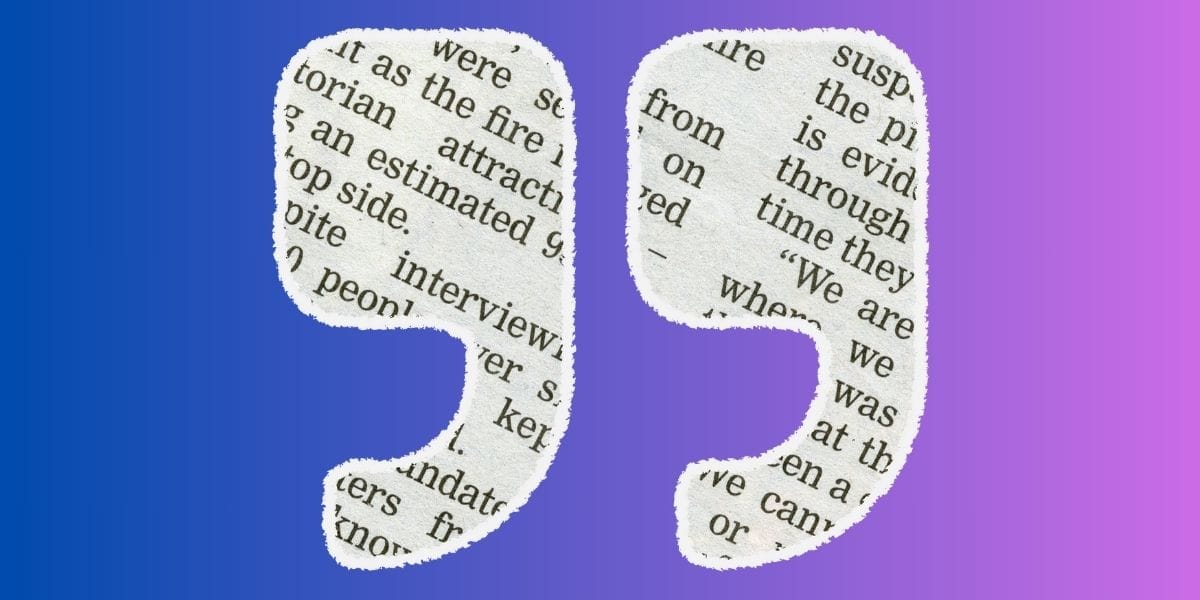Want to learn how to be smarter with money? Our tip is to hit the library, visit your local bookshop, load up your kindle, and get reading.
Personal recommendations can be one of the most trusted sources of referrals, whether you’re trying to find a doctor or choosing a credit card. When it comes to books, we think word-of-mouth and Goodreads are where it’s at.
And that’s exactly how Spaceship has put together this list.
To get your head around the whole thing, it makes sense to break the topic out into three subject areas:
- What are some of the best proven methods for managing money?
- How does the world of finance operate? and
- How can I manage my own personal budget instead of having my debts and expenses manage me?
Or, to simplify even further: economics, commerce and clever budgeting.
It’s smart to start with personal finances and budgeting, because let’s face it, all the academic knowledge in the world won’t help you if you can’t top up your Opal card to get to work after a big weekend. So, when it comes down to astute financial planning, who comes in at number one? I’m sure the suspense is killing you, so I’ll put you out of your misery...
1. The Intelligent Investor: The Definitive Book on Value Investing by Benjamin Graham, Jason Zweig (Contributor) and Warren Buffet (Contributor)
A — no, the classic book in this genre. The Intelligent Investor was published in 1949 and yet it’s still selling, still raking in five-star reviews and still helping people build wealth. Graham’s philosophy on “value investing” is based around long-term strategies and safety shields. We think it’s the original blueprint for savvy investing and making smart financial decisions. Any text that is still considered an industry bible a year short of its 70th birthday probably deserves a spot on your shelf.
The Intelligent Investor: The Definitive Book on Value Investing
2. Your Money or Your Life by Vicki Robin and Joe Dominguez
This is another book that’s stood the test of time. Published in 1999, we think that Robin was way ahead of the pack in drawing the distinction between making a living and making a life. The specific investment advice in the early editions, in our view, is ludicrously outdated — thankfully new editions are rigorously updated — but Robin’s approach to personal finances is essentially Socratic i.e. if the unexamined life is not worth living, then for Robin, the unexamined purchase, investment or professional move is equally worthless. We think drawing a link between the value of your time in exchange for material benefit or expenditure was well ahead of its time and has become an even bigger issue now than it was when the book was first published. Now that’s prescient and smart.
Side note: There’s a great breakdown of Robin’s nine steps to financial and life knowhow over on the Afford Anything blog.
3. Rich Dad’s Cashflow Quadrant by Robert T. Kiyosaki & Sharon L. Lechter
You might know Robert Kiyosaki and Sharon Lechter as the authors of Rich Dad, Poor Dad.
According to our research, there’s as much to dislike about Rich Dad, Poor Dad as there is to like; the amount of judgement cast against it is in inverse proportion to Vicki Robin’s “no shame, no blame” mantra. With that said, there’s no denying the book launched a lot of people onto the road to financial freedom (and probably made at least one dad rich). Still, Kiyosaki and Lechter’s more recent book, Cashflow Quadrant: Rich Dad's Guide to Financial Freedom might be a better option for anyone looking for a practical roadmap to guide them towards lasting prosperity.
Side note: Here’s a great explanation of Kiyosaki’s ESBI Quadrant via Practical Psychology.
4. Financial Freedom: A Proven Path to All the Money You Will Ever Need by Grant Sabatier
Sabatier is famous for going from being completely broke — think unemployed with $2.26 left in the bank — to a net worth of $1m+ in five years. Grant Sabatier walked the walk from looming failure to financial prodigy. In Financial Freedom, he takes a practical approach to finances, leading readers step-by-step through the strategies he used to conquer debt and create a work routine (complete with side hustles) to help readers create a strategy that works for them. Just like Vicki Robin (who incidentally wrote the foreword), Sabatier attributes greater value to his time than any other resource. His version of being money smart is tightly interwoven with the freedom to make his own choices about how he spends both time and money.
Sabatier’s podcast reinforces the message of his book and aims to help keep you on the path to personal and financial freedom.
Financial Freedom: A Proven Path to All the Money You Will Ever Need
5. The Bogleheads’ Guide to Investing by Taylor Larimore, Michael LeBoeuf, Mel Lindauer
If you’re looking for a straightforward, easy-to-follow guide to how to get started as an investor, this is the book for you. The book is inspired by the work and philosophy of Vanguard founder Jack Bogle. It’s a couple of years old now but the advice is simple and still relevant.
The authors also run an active and informative forum, which is US-centric but still worth following.
The Bogleheads’ Guide to Investing
6. Anything by Michael Lewis
We think anything by Michael Lewis would make for a good read, but in particular, we find Liar’s Poker, the first book Lewis published (in 1989), and his 2010 smash hit The Big Short: Inside The Doomsday Machine, to be must-reads. Liar’s Poker offered an insider’s glimpse of the freewheeling, “Greed Is Good” Wall Street of the 1980’s, and boy was it a shock to the uninitiated. The Big Short is a sober and disturbing account of the build up to and manoeuvring that took place immediately prior to 2008’s Global Financial Crisis. If you’re still buoyant after reading both books, you could consider tackling Flash Boys, published in 2014, next. This mildly-terrifying investigation of High Frequency Trading (HFT) and its impact on the transparency and trustworthiness of the US stock market is intriguing. These are not books to be avoided simply because they paint a less than rosy picture of the financial markets. Algorithms and Wall Street (and its global counterparts) aren’t going anywhere, anytime soon. If you’re going to play the game, you need to know what you’re getting yourself into, which areas to invest in, and which to avoid. Forewarned is forearmed.
7. The Ascent of Money: A Financial History of the World by Niall Ferguson
This is the book you need to read if you want to understand what money actually is, as well as how it works. This book gives you a complete and comprehensive historical perspective of money, that’s hard to beat. Niall Ferguson is a Harvard professor and knows his stuff. There’s a great documentary series based on the book that we think is also worth tracking down.
The Ascent of Money: A Financial History of the World
8. The Wealth of Nations by Adam Smith
Formally known as An Inquiry Into the Nature and Causes of the Wealth and Nations, Smith’s book was published in 1776 and was one of the first major works to examine and tie together money, labour, productivity and the free market. Smith was a philosopher as well as an economist. The Wealth of Nations was written at the beginning of the Industrial Revolution, as well as in the midst of the Scottish Enlightenment. It sets the parameters on how money would be debated, and its influence has lasted centuries. It’s not a light read, but it you want to know where our financial system came from, this is where you start. (Even if you don’t finish it, we think just taking in the precis will leave you better informed than you were.)
9. Capital by Thomas Piketty
(Okay, you can read the original Capital if you insist, but Marx's is heavier going than Piketty's) In this absolute brick of a book (you’ll gain some well-earned arm definition if you do decide to read the damn thing), Piketty runs the numbers (in minute detail) to argue that rather than progressing, we’re moving backwards, returning to an economic set-up that mirrors the so-called Gilded Age. Essentially, it’s all about the ever-increasing concentration of capital, which makes both ages, then and now, more gilded for some people than others. If you can make your way to the end of the book, you’ll likely be statistically more informed than just about anyone else. Who can argue with that?
By now, you should be well informed about running your personal finances, the financial system and what money is and how the economy works. in our opinion, if you really want to win the financial game, you need to know how to play, what the rules are, and what happens when they’re broken. Getting your head around money as a concept is trickier than you’d imagine, given that we use it every day with barely a second thought. (Unless your balance is getting low, of course, in which case every transaction probably involves third thoughts and a whole load of fretting.) Just by working your way through our reading list, you are likely to be more informed about managing your money and hopefully be smarter with your money.
10. The Barefoot Investor by Scott Pape
In our opinion, Pape has well and truly earned his reputation as a personal finance guru. Ask around and you’ll hear the same kind of responses over and over. “It’s the first time S and I have been able to seriously budget and save. I wouldn’t say we were terrible with money before, but now we know how much we have to spend each week, I can still buy pretty shoes sometimes, and damn, I can pay for that kitchen renovation straight up.” Or, “I bought [the book] and then suddenly we were able to save for a trip to Thailand. I thought I was good at budgeting before too.”
On Goodreads, The Barefoot Investor falls into the “Eat, Pray, Love” category. People either love it or mock it (then ritually burn it). Unfortunately, Pape’s later book on establishing financial freedom in your 20s and 30s hasn’t garnered nearly the same kind of devotion. So, if you’re looking to up your financial IQ, we think you should stick to the original; any book on budgeting that has garnered as many five-star reviews as Pape’s has, must be worth a read. Side note: You can keep up to date with Pape’s news and tips on his website.



